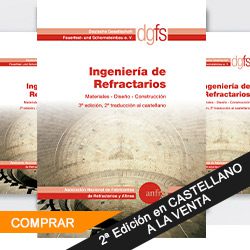The European ceramic industry covers a wide range of products including bricks and roof tiles, clay pipes, wall and floor tiles, refractories, sanitaryware, table- and ornamentalware, technical ceramics, expanded clay and flower pots.
Cerame-Unie, the European Ceramic Industry Association, welcomes the upcoming revision of the Waste Shipment Regulation (WSR) as announced in the new Circular Economy Action Plan adopted by the European Commission in March 2020. Cerame-Unie fully supports the three policy objectives pursued by the revision of the WSR. In addition to the questionnaire, Cerame-Unie would like to specifically comment on the first objective which aims at more effectively support the transition to a circular economy.
Objective 1: To facilitate preparing for reuse and recycling of waste in the EU and ensure a smooth functioning of the EU internal market for waste destined for preparation for reuse or recycling, thereby supporting the transition to circular economy models and adding value to waste in the EU.
Introduce a new simplified procedure for intra-EU shipments of waste destined to preparation for reuse or recycling.
Cerame-Unie highlights that current legal procedures hamper cross-boarders movements of waste for reuse and recycling within the EU. Thus, it strongly limits the uptake and competitive advantage of recycled material. Facilitating reuse and recycling of waste through simplified rules for intra-EU waste shipment will add value to waste and better support the transition to circular economy.
Cerame-Unie also stresses that a smooth functioning of the EU internal market for waste and materials destined for reuse and recycling will help the industry to increase the recovery of waste materials and the reuse and recycling of its products. It will result in a level playing field as regards waste management.
Simplification and reduction of administrative burden linked to the implementation of the WSR.
We underline that current procedures for shipment of waste between Member States are a complex process and lead to administrative overburden for manufacturers. To overcome these obstacles, provisions to further harmonise the implementation of certain procedures and to reduce unnecessary regulatory and administrative burdens are welcome.
Cerame-Unie underlines that a better enforcement of the WSR and control of waste shipments will better address illegal shipments of waste within the EU as well as exports to third countries, unless there is a clear evidence that it will be processed in an environmentally sound manner.
Treat waste intended for reuse or recycling as goods
In a nutshell, Cerame-Unie highlights that a policy that effectively implements the objectives set out by the new Circular Economy Action Plan should make a decisive choice towards considering waste as a resource. This can be only achieved if waste intended for re-use or recycling is treated as goods. Thus, there is a need for a clear separation between the scheme applicable to waste destined for disposal and waste destined to valorisation that must benefit from the principle of free movement of goods within the EU. The revised and strengthened Waste Shipment Regulation should apply to waste intended to be sent outside the EU, while the internal rules for End of Waste, which must become uniform and mandatory for Member States with a radical simplification of burdens, should be strengthened.



